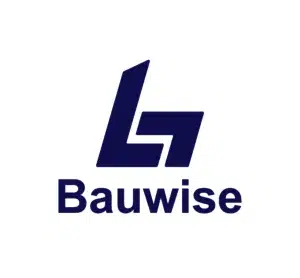In today’s competitive landscape, the construction industry isn’t just about pouring concrete and laying bricks. More than ever, the success of your construction company hinges on your ability to market and promote your services effectively. It’s about demonstrating your skill, integrity, and reliability to potential clients. It’s about standing out from the crowd and building strong, lasting relationships. It’s about staying ahead of the game.
But marketing and promoting a construction business isn’t as straightforward as it might seem. It’s not merely about advertising your services or touting your past projects. Rather, it requires a strategic, multifaceted approach that draws on various aspects of modern marketing – from brand building to social media, from content creation to SEO, and beyond. This article will cover the essentials of construction marketing, including promoting services, creating brand awareness, generating leads and conversions, setting up Google local service ads, building a local online presence, sending engaging emails, involving employees in marketing campaigns, and offering free knowledge to attract potential clients.
This article serves as your comprehensive guide on construction company marketing and promotion. We will delve into the various strategies you can employ to make your business more visible and attractive to prospective clients. We will discuss how to understand your market, build a strong brand, create a professional website, harness the power of social media, leverage online directories and review sites, utilize email marketing, produce engaging content, network with industry partners, use paid advertising effectively, and measure your success.
By the end of this article, you’ll have a clearer picture of what it takes to promote your construction company successfully in the digital age. No matter the size or scope of your business, these tactics can help you forge ahead in the industry and carve out your own niche.
Let’s lay the foundation for your business’s growth and prosperity. Welcome to the world of construction company marketing and promotion. Let’s get started!
Table of Contents
1. Understanding Your Market
Before you put your hard hat on and dive headfirst into the world of construction company marketing and promotion, it’s crucial to start by understanding your market. Knowledge is power, after all. Knowing who you’re catering to, what they need, and how your competitors are meeting these needs can provide a valuable roadmap to guide your marketing efforts.
Know Your Audience
Every successful marketing strategy begins with a deep understanding of the target audience. In the construction industry, your audience may include homeowners, real estate developers, government agencies, or other businesses. Each of these demographics has unique needs and pain points that your company can address.
Consider what types of projects your company specializes in or would like to specialize in. Are you residential builders focused on custom homes? Or do you primarily engage in commercial construction? Your target audience will depend largely on this focus.
It’s also vital to know your audience’s demographics and psychographics—this includes their location, age, income level, occupation, interests, and challenges. This information can guide your messaging, helping you speak directly to your clients’ needs and aspirations.
Understand Your Competition
Equally important in understanding your market is studying your competition. Look at other construction companies that offer similar services in your area. What do they do well? Where could they improve? More importantly, how can you differentiate your company from theirs?
Competitor analysis can provide a wealth of information. Review their websites, social media accounts, customer reviews, and any other available resources. Pay special attention to their marketing strategies. Are they heavily focused on social media advertising, or do they rely more on traditional advertising methods? Do they have a blog or a regularly updated portfolio? Answering these questions will help you spot gaps in their strategies that you could fill.
The Value of Market Research
The process of understanding your market—your audience and competition—is essentially a form of market research. But don’t shy away from the term “research.” Think of it more as a fact-finding mission, a treasure hunt that can unearth invaluable insights to propel your business forward.
Market research might sound daunting, especially if you’re a small business without a designated marketing team. But in the digital age, tools and resources abound to simplify this task. Online surveys, social media analytics, and even simple conversations with past clients can provide valuable insights.
To sum up, understanding your market is the first and most crucial step in your construction company marketing and promotion journey. It’s about knowing who your clients are, what they need, and how best to meet those needs in a way that sets you apart from your competitors. Armed with this knowledge, you can craft a marketing strategy that hits the nail on the head every time.
2. Building a Strong Brand
Imagine for a moment that you’re at a networking event filled with construction professionals. Everyone is wearing similar work attire, they all have similar tools of the trade, and they’re all trying to attract the same clients. How do you stand out? What makes you memorable? That’s where branding comes in.
What is Branding?
In a nutshell, your brand is your promise to your customer. It tells them what they can expect from your services, and it differentiates your offering from that of your competitors. Your brand is who you are, who you want to be, and how people perceive you.
For your construction company, branding isn’t just about having a flashy logo or a catchy tagline. Those elements can help, but at its core, your brand represents the sum total of your clients’ perceptions of your company. These include their experiences, their expectations, and their memories of your interactions.
Creating a Compelling Logo and Tagline
A logo and tagline are crucial parts of your branding arsenal, serving as the visual “face” of your company. A well-designed logo can communicate everything from the company’s background (professional, reliable, and experienced) to their mission (innovation, service, and superior quality).
Your logo should be unique and instantly recognizable, and it should convey your company’s character. You don’t want it to be so outlandish that it scares away potential clients, but it should be distinctive enough to stand out from the competition.
The tagline, on the other hand, is a brief phrase that encapsulates your company’s mission, ethos, or promise to its customers. It should be short, clear, and compelling. Think of it as the slogan that will make customers think of you whenever they hear it.
Establishing a Consistent Brand Voice and Image
Your brand voice is the consistent expression of your brand through words and prose styles that engage and motivate. It’s how you communicate with your audience and how you want your business to be perceived. Whether it’s professional, friendly, authoritative, or witty, your brand voice should be consistent across all channels and platforms.
Similarly, your brand image — the perception of your brand in the minds of your customers — should remain consistent. This consistency extends to the color scheme, typography, and imagery you use on your website, social media, advertisements, and other promotional materials.
Your brand is a beacon in the crowded marketplace, guiding clients to your company. If your brand is consistent, reliable, and appealing, it can serve as a powerful tool in your construction company marketing and promotion strategy.
Remember, building a strong brand doesn’t happen overnight. It requires thought, consistency, and a dash of creativity. But the effort is well worth it because a strong brand can cement your place in the industry and ensure that you’re not just another construction company — you’re the construction company that clients remember and trust.
3. Constructing a Professional Website
We live in a digital world, where the internet is often the first place people go when they’re looking for a product or service. As such, having a professional, easy-to-navigate website for your construction company isn’t just a nice-to-have – it’s an absolute must. A professional website serves as the cornerstone of effective digital marketing for modern construction companies.
Why a Professional Website?
Think of your website as your virtual storefront. It’s the place where potential clients can learn about your services, see your past projects, and, most importantly, get in touch with you. But it’s not enough to just have a website; it needs to make a good first impression, or else potential clients might not stick around to learn more.
So, what makes a good construction company website? Let’s dive in.
Key Elements of an Effective Construction Company Website
- User-Friendly Design:Your website should be clean, organized, and easy to navigate. A confusing or cluttered website can drive visitors away. On the flip side, a website that’s easy to use can encourage visitors to stay longer and explore more of what your company has to offer.
- High-Quality Photos:A picture is worth a thousand words, particularly in the construction industry. Show off your best work with high-quality photos of your completed projects. If possible, consider hiring a professional photographer to really make your work shine.
- Clear, Concise Content:Visitors to your website should be able to quickly and easily understand who you are, what you do, and how to contact you. Use clear, concise language and avoid industry jargon that might confuse visitors.
- Testimonials and Reviews:If you have positive testimonials from past clients, display them prominently on your website. These can serve as powerful proof of your company’s reliability and quality of work.
- Contact Information:Your contact information should be easy to find, encouraging potential clients to reach out to you with any questions or requests for quotes.
Website SEO (Search Engine Optimization) Basics
But having a fantastic website isn’t much use if no one can find it. That’s where search engine optimization, or SEO, comes in. SEO involves optimizing your website so that it ranks higher in search engine results, making it more likely that people will find your site when they search for construction companies in your area.
SEO can get quite complex, but here are a few basics:
- Keywords:These are the words and phrases that people are likely to use when searching for a construction company like yours. Your website content should naturally incorporate these keywords, especially in headings and in the first few paragraphs of your content.
- Mobile-Friendly:More people than ever are using their mobile devices to browse the web. Your website should be mobile-friendly, meaning it looks and works well on both desktop and mobile screens.
- Fast Loading Time:Slow websites frustrate users and may even rank lower in search results. Make sure your site loads quickly on all devices.
Constructing a professional website for your construction company is an investment that can pay off big time. It can help you attract more clients, showcase your best work, and establish your company as a leader in your local construction industry.
4. Harnessing the Power of Social Media Marketing
“Social media? Isn’t that for teenagers and cat videos?” you might ask. Well, sure, social media platforms can be a place for fun and games, but they’re also powerful tools for launching effective marketing campaigns that can help elevate your construction company’s marketing and promotion efforts, engaging and expanding your target audience.
The Role of Social Media in Construction Company Marketing
Gone are the days when construction businesses could rely solely on word-of-mouth or traditional advertising methods. In today’s digital landscape, social media platforms provide an avenue to reach a broader audience, showcase your projects, and interact directly with potential clients. It’s all about building relationships and maintaining a consistent online presence.
Choosing the Right Platforms
Not all social media platforms are created equal, especially when it comes to business promotion. Your choice of platform will depend on your target audience and the type of content you plan to share.
LinkedIn, for example, is great for networking with other industry professionals and sharing company news or blog posts. Instagram, with its focus on visuals, is perfect for showing off completed projects or behind-the-scenes looks at your construction process. Facebook, with its broad user base, can be useful for sharing a mix of content types and gathering customer reviews.
Remember, you don’t need to be on every platform. It’s better to choose one or two platforms where your target audience is active and focus your efforts there.
Creating Engaging Content
Now, let’s talk content. What should you post on social media?
First and foremost, your content should provide value to your audience. This could mean offering insights into the construction process, sharing updates about your company, or posting stunning images of your completed projects.
But don’t forget to engage! Social media isn’t a one-way street. Encourage followers to interact with your posts by asking questions or requesting feedback. Respond to comments promptly and professionally. Remember, each interaction is an opportunity to build relationships and foster customer loyalty.
The Power of Social Media
When done right, social media marketing can do more than just get your company’s name out there. It can help establish your brand, create a loyal following, and even generate leads for your business. It’s not about shouting into the void—it’s about creating a conversation and connecting with your audience in a meaningful way.
Social media might seem intimidating at first, especially if you’re new to the digital world. But don’t worry – with a little bit of planning, some creativity, and a commitment to engagement, you’ll be well on your way to harnessing the power of social media for your construction company marketing and promotion.
5. Utilizing Online Directories and Review Sites
Have you ever been in a new town and searched for “restaurants near me” on your phone? Or perhaps you’ve looked up “best hair salons” in your area after a home haircut mishap (don’t worry, we’ve all been there). These types of searches are made possible thanks to online directories, and they’re not just for finding the best pizza or saving your hairstyle – they’re a powerful tool for promoting your construction company, too.
The Significance of Online Directories
Online directories are the modern-day Yellow Pages. Sites like Google My Business, Bing Places, Yelp, Angie’s List, and Houzz are often the first port of call for potential clients looking for construction services in their area. By listing your construction company in these directories, you increase your visibility and improve your chances of being discovered by those who need your services.
Having a comprehensive, up-to-date profile on these sites is crucial. This includes your company’s name, contact information, hours of operation, and a list of the services you offer. Adding high-quality photos of your work and a link to your website can also make your listing more attractive to potential clients.
The Impact of Review Sites
But online directories aren’t just digital phone books. Many of them also allow customers to leave reviews, making them incredibly valuable in the world of construction company marketing and promotion.
Think back to the last time you booked a hotel or bought a new product. Chances are, you read a few reviews before making your decision. You’re not alone in this – many people trust online reviews as much as personal recommendations.
Positive reviews can boost your company’s reputation and help build trust with potential clients. On the other hand, negative reviews, while not ideal, offer an opportunity to demonstrate your customer service skills. Responding professionally and constructively to negative feedback can show potential clients that you’re committed to resolving issues and delivering a high level of service.
Encourage your satisfied customers to leave a review. This could be as simple as sending a follow-up email after a project is completed, asking for their feedback and providing a link to your listing.
The Power of SEO
Finally, it’s worth noting that online directories can boost your SEO (search engine optimization) efforts. Search engines like Google favor businesses that are listed in reputable online directories. By optimizing your listings with relevant keywords, you can improve your ranking in search results, making it easier for potential clients to find you.
In conclusion, online directories and review sites are much more than just a digital listing of businesses. They’re a powerful tool that can increase your visibility, build trust with potential clients, and ultimately drive more business your way. So, don’t overlook them in your construction company marketing and promotion strategy.
6. Email Marketing
Nowadays, our inboxes are so full, you might think that email marketing is a relic of the past. But it’s far from dead – in fact, it’s thriving. When done correctly, email marketing can be a powerful tool for construction company marketing and promotion.
Why Choose Email Marketing?
Despite the prevalence of social media and other forms of digital communication, email remains an effective way to reach your audience. Here’s why:
- Direct Communication:Unlike social media, where your post may get lost in a sea of other content, an email lands directly in a recipient’s inbox, increasing the likelihood that your message will be seen.
- Personalized Messaging:Email marketing platforms allow for personalized messages, which can make your clients and potential clients feel valued and seen. This could mean including the recipient’s name in the email or tailoring the content to their specific interests or needs.
- Cost-Effective:Compared to traditional forms of advertising, email marketing is incredibly cost-effective. With a decent email marketing platform and a well-maintained email list, you can reach a large audience without breaking the bank.
Best Practices for Email Marketing
Ready to dive into the world of email marketing? Here are some best practices to keep in mind:
- Build a Quality Email List:Your email list should consist of people who have expressed interest in your services – whether they’re past clients, potential clients, or others in your industry. Avoid purchasing email lists, as these often lead to low engagement and can harm your company’s reputation.
- Provide Value:Nobody likes spam. Ensure your emails provide value to the recipient. This could mean sharing updates about your company, providing helpful construction tips, or offering exclusive promotions.
- Optimize for Mobile:More people than ever are checking their emails on their mobile devices. Make sure your emails look good and are easy to read on smaller screens.
- Measure and Adjust:Use the analytics provided by your email marketing platform to see how your emails are performing. Are people opening them? Are they clicking on any links? Use this information to adjust your strategy as needed.
Remember, like any form of marketing, email marketing should not be pushy or salesy. It’s about building relationships, providing value, and staying top-of-mind for when your recipients need the services you offer.
In conclusion, don’t write off email marketing just yet. When done right, it can be a valuable component of your construction company marketing and promotion strategy.
7. Construction Marketing Strategy through Content Marketing
Let’s talk content marketing, one of the most effective long-term strategies you can adopt for promoting your construction company and sharing innovative construction marketing ideas that engage and attract your target audience. If you’re scratching your head wondering what content marketing is, don’t fret. It’s simpler than it sounds, and by the end of this section, you’ll know exactly why you need it and how to implement it effectively.
Content Marketing Demystified
At its core, content marketing is about creating and sharing valuable, relevant content that engages your target audience. It’s not just about selling your services, but about positioning your construction company as an expert in the field. This can build trust with potential clients, who will turn to you when they need the services you offer.
The Types of Content to Share
Content can come in various forms – blog posts, videos, infographics, ebooks, case studies – you name it! The key is to offer something that your target audience will find useful or informative.
For example, you could write blog posts about common construction issues and how to solve them, or you could create a video tour showcasing one of your completed projects. The possibilities are endless, but remember – quality over quantity. It’s better to have a few pieces of high-quality content than lots of mediocre ones.
Promoting Your Content
Once you’ve created your content, it’s time to share it with the world. This is where your website, email marketing, and social media channels come in. Distribute your content through these channels to reach your target audience.
Don’t forget about SEO when creating and sharing your content. By optimizing your content with relevant keywords, you can improve its visibility in search engine results and reach a larger audience.
The Long-Term Benefits
Content marketing isn’t a quick fix – it’s a long-term strategy. Over time, your content can help establish your company’s reputation, generate organic traffic to your website, and increase leads and conversions.
Remember, content marketing isn’t about selling – it’s about sharing knowledge and building relationships. By providing valuable, relevant content, you can engage your target audience and position your construction company as a leader in the industry. And that, in turn, can lead to more clients and successful projects in your future.
8. Networking and Industry Partnerships
You’ve heard it a thousand times: “It’s not what you know, but who you know.” Well, in the world of construction company marketing and promotion, it’s actually a bit of both. Networking and forming industry partnerships can significantly amplify your company’s reach and reputation, making these strategies crucial for any construction business.
Why Networking Matters
The construction industry is a tightly-knit community where relationships matter. When you network effectively, you’re not just collecting business cards – you’re building relationships that could lead to new business opportunities, partnerships, or referrals down the line. These connections can help keep your company top-of-mind when opportunities arise.
Networking can take many forms. Attending industry events, joining trade associations, or participating in local business groups can all open doors for your business. And let’s not forget digital networking – platforms like LinkedIn can be a treasure trove of networking opportunities.
The Power of Industry Partnerships
While networking casts a wide net, forming industry partnerships is about building deeper, mutually beneficial relationships with other businesses in your industry.
For example, partnering with local architects or interior designers could lead to a steady stream of referral business. Or, you might form a partnership with a local supplier for discounted materials. The key is to find partnerships where both parties stand to gain something.
Building Authentic Relationships
Whether you’re networking or forming partnerships, authenticity is crucial. Don’t go into every interaction looking to sell your services. Instead, show genuine interest in the other person and their business. Look for ways you can support them or work together. Over time, these relationships can lead to new opportunities for your construction company.
In a Nutshell…
Networking and industry partnerships aren’t about quick wins – they’re long-term strategies that can help grow your construction business over time. By building authentic, mutually beneficial relationships, you’re not just promoting your construction company – you’re establishing your company as a trusted player in the construction industry.
9. Paid Advertising
In the vast universe of construction company marketing and promotion, sometimes you need a little extra rocket fuel to boost your visibility. That’s where paid advertising comes in, including the strategic use of google local service ads. These ads are crucial for construction companies aiming to enhance their visibility and credibility in local search results. By setting up Google local service ads, your business can appear with a ‘Google Guaranteed Badge’ when someone searches for a relevant service, ensuring you only pay for leads and gain an endorsement from Google. Before you start worrying about dollar signs, rest assured – you don’t have to break the bank to benefit from paid advertising. With smart planning and a bit of savvy, you can reach the right audience without blowing your budget.
The Power of Paid Advertising
Paid advertising refers to any kind of marketing where you pay to place your message in front of a specific audience. This includes online channels like Google Ads or social media advertising, as well as traditional mediums like billboards, radio spots, or newspaper ads.
So, why should you consider investing in paid advertising? It’s simple – reach. While organic marketing efforts (like SEO or content marketing) are crucial, they can take time to yield results. Paid advertising, on the other hand, can put your construction company in front of the right eyes, fast.
Online Advertising: Google Ads and Social Media
In the digital era, online advertising platforms like Google Ads or Facebook Ads are increasingly popular. Why? Because they allow you to target your ads with laser-like precision. Want to advertise to homeowners within a 20-mile radius of your office? Or target people who’ve recently visited home improvement websites? With online advertising, it’s possible.
Traditional Advertising: Print, Radio, and Billboards
Traditional advertising still has its place, particularly in local markets. A well-placed billboard, a radio spot during the morning commute, or an ad in a local newspaper or magazine can still generate valuable visibility for your construction company.
Crafting an Effective Advertising Strategy
The key to successful advertising is knowing your audience and tailoring your message to resonate with them. This requires understanding their needs and desires and demonstrating how your construction company can meet those needs. Additionally, don’t forget to include a strong call-to-action, guiding your audience on what to do next.
Conclusion
Paid advertising can be a valuable tool in your construction company marketing and promotion arsenal. By reaching a larger audience, you can increase awareness of your company, attract more leads, and ultimately, secure more contracts. The key is to align your advertising strategy with your broader marketing goals and ensure your message resonates with your target audience.
10. Measuring Your Success
Alright, you’ve done the groundwork. Your construction company marketing and promotion strategy is up and running. But how do you know if your efforts are paying off? Enter the world of metrics and analytics. Don’t worry, it’s not as intimidating as it sounds. Let’s break it down together.
Why Measurement Matters
Investing in marketing without measuring results is like building a house without a blueprint. Sure, you might end up with something that looks like a house, but it won’t be as sturdy or functional as it could be.
The same goes for marketing. By tracking key metrics, you can understand what’s working, what’s not, and adjust your strategy accordingly.
Key Metrics to Monitor
Here are some key metrics to keep an eye on:
- Website Traffic:How many people are visiting your website? Which pages are they spending the most time on? Tools like Google Analytics can provide valuable insights.
- Lead Generation:How many potential clients are contacting you for quotes or more information? Are these leads coming from your website, social media, email marketing, or elsewhere?
- Social Media Engagement:Are people interacting with your social media posts? Are they sharing your content, commenting, or liking your posts?
- Email Open and Click-Through Rates:If you’re utilizing email marketing, monitor how many people are opening your emails and clicking on links within them. Most email marketing platforms provide these analytics.
- Customer Acquisition Cost:How much are you spending to acquire a new client? This can be calculated by dividing your total marketing spend by the number of new clients gained in a certain period.
Adjusting Your Strategy
Once you’ve collected some data, it’s time to analyze it and adjust your strategy accordingly. If your website is getting lots of traffic but you’re not receiving many inquiries, you might need to improve your website’s call-to-action. If your social media posts are getting lots of engagement, consider focusing more of your efforts there.
Remember, the goal of measuring your success isn’t just to pat yourself on the back for a job well done (though that’s a nice bonus!). It’s about learning and improving. By understanding your marketing performance, you can make informed decisions, adjust your strategy, and ultimately, grow your construction company.
Conclusion
We’ve covered a lot of ground together in this comprehensive guide on promoting your construction company. From understanding your market to harnessing the power of SEO, creating compelling content, and measuring your success, you’re now equipped with a toolbox full of strategies to boost your construction company’s visibility and attract more clients.
But remember, the most powerful tool in your arsenal is patience. Building a strong brand, just like constructing a sturdy building, doesn’t happen overnight. It requires time, effort, and consistency. Keep laying those bricks, one by one, and before long, you’ll have a structure that not only stands tall but also withstands the test of time.
Moreover, remember that every construction company is unique. What works wonders for one might not work as well for another. Don’t be afraid to adapt these strategies to fit your specific needs and circumstances. The key is to keep learning, keep experimenting, and keep pushing forward.
Lastly, remember that your ultimate goal is to provide value. Whether it’s through the quality of your construction work, the information you provide in a blog post, or the way you engage with followers on social media, always aim to offer something beneficial. This mindset won’t just help you attract clients—it’ll help you build lasting relationships that continue to benefit your business for years to come.
In the world of construction company marketing and promotion, there’s always something new to learn, always a new strategy to try. But with this guide in your hands, you’re well on your way to building a marketing strategy that’s as solid as the structures you create. Keep building, keep promoting, and most importantly, keep believing in the incredible value you bring to your clients and your community.
Related posts
Read our other articles where you can find useful and relevant information about construction marketing:
- 10 Social Media Ideas for Construction Companies
- How to Start a Construction Company: 10 Steps to Start Your Own Business
About the Author

Bret-Gregor Maidre
Bret-Gregor Maidre is the Head of Marketing at Bauwise, known for his strategic prowess in digital marketing. With a background in digital journalism and marketing from Tallinn University, Bret combines storytelling with marketing insight to significantly expand Bauwise’s customer base and revenue. View profile






